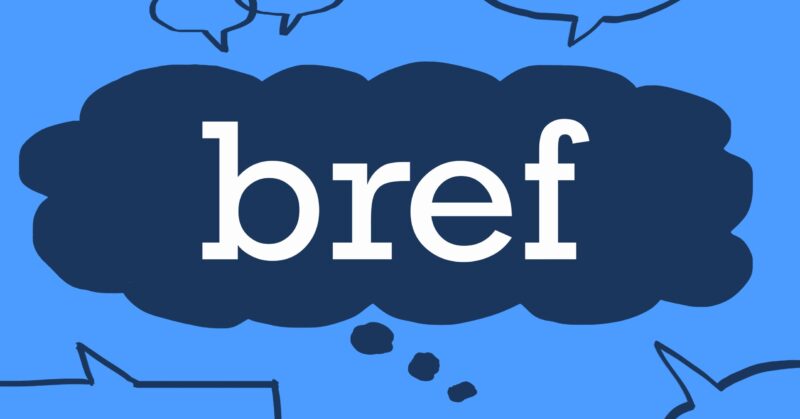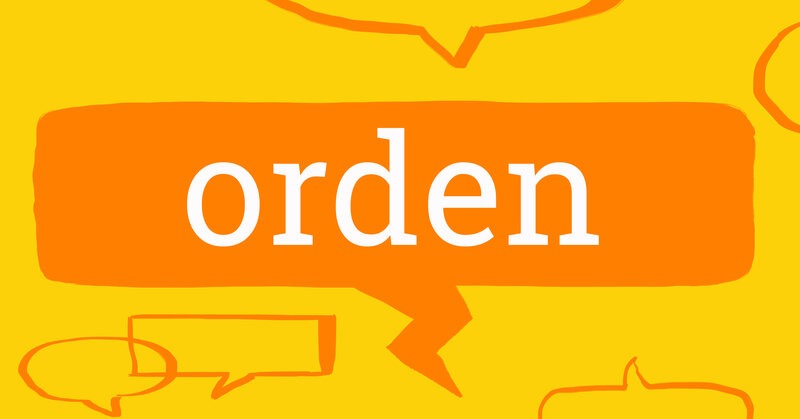Your favourite French vocabulary blog is back for another instalment! Welcome to Collins’ French word of the week. Today, we’re studying the word bref, which you can use as an adjective, adverb or noun.
Take a listen to our audio clips for pronunciations of both masculine and feminine forms, as they do sound quite different – firstly, here’s the masculine form bref…:
…and now the feminine form brève:
As is often the case with English-speaking learners of French, it’s tempting to draw on similarities to English words to help you work out the meaning. In this case, while there are no exact matches, you might have noticed that bref could be a close cousin to the word brief.
While bref is quite a dynamic word in French, as you’ll see later, its main translation is indeed brief, as well as short or fleeting.
As an adjective, you can use bref to describe a noun. You’ll also need to spell most French adjectives in different ways to make them agree with the noun they’re describing. This means you might see bref in three additional forms:
- The feminine form brève
- The masculine plural form brefs
- The feminine plural form brèves
As we’ve now covered most of the grammar, let’s move on to some examples:
Notre avocat nous a demandé un bref récit de la situation. Our lawyer asked us for a brief account of the situation.
Elle m’écrit toujours des lettres très brèves. She always writes very short letters to me.
Je n’aime pas quand mon patron me parle d’un ton bref. I don’t like when my boss speaks to me curtly / shortly.
Sa carrière dans les arts a été brève. Her career in the arts was rather fleeting.
The next thing we need to explain is the adverb bref and the noun phrase en bref, which you’ll hear very often in spoken French. You can use these to express the idea of summarising something or ending one part of a conversation to move on to another topic.
While there isn’t one single, direct translation for these related expressions, we’ve given plenty of English examples to help you understand the sense:
Bref, n’en parlons plus. Anyhow, let’s just stop talking about it.
Bref, je ne veux pas qu’elle vienne avec nous. Anyway, I don’t want her to come with us.
Bref, tout va bien. In the end, everything’s fine.
Bon, bref, ils me n’aiment pas c’est tout. So in short, they just don’t like me.
En bref, nous sommes partis sans avoir mangé. To cut a long story short, we left without having eaten.
So, in short, you’ve learned another new word today – well done! We hope that your journey in French learning will be long and prosperous, rather than a brief encounter. See you here again next week.
Written by Holly Tarbet, freelance copywriter and editor.
All opinions expressed on this blog are those of the individual writers, and do not necessarily reflect the opinions or policies of Collins, or its parent company, HarperCollins.




collins_dictionary_official
The home of living language. #wotd #wordlovers #collinsdictionary
Read our word of the week definitions and blog posts: